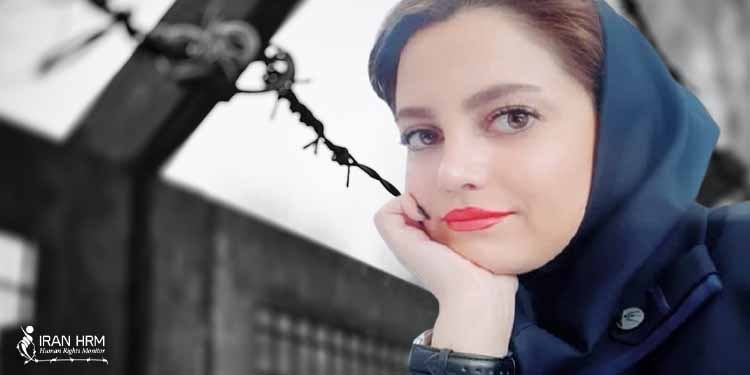CHRI – Political prisoner Shakila Monfared was beaten and injured on Monday, June 7, by a number of prisoners after she was unlawfully kept in a ward that holds inmates convicted of dangerous crimes in Qarchak Prson.

Prisoners incited by prison staff attacked and insulted Shakila Monfared, injuring her with the lid of a tuna can.
According to Iranian law, prisons are required to divide prisoners according to the nature of their convictions.
Article 69 of the State Prisons Organization’s regulations states: “All convicts, upon being admitted to walled prisons or rehabilitation centers, will be separated based on the type and duration of their sentence, prior record, character, morals and behavior, in accordance with decisions made by the Prisoners Classification Council.”
But political prisoners continue to be transferred to and held in prisons and wards with inmates convicted of violent crimes or with substance abuse issues.
Born in 1993, political prisoner Shakila Monfared resides in Tehran. On August 22, 2020, intelligence forces arrested her as she was leaving home.
She was initially sentenced by the Tehran Revolutionary Court to six years in prison and four months of forced labor in the Ministry of Agriculture Jihad on charges of “propaganda activities against the regime and insulting the sanctities of Islam.”
The Branch 36 of the Tehran Court of Appeals commuted her sentence to four years and two months of prison.
Political prisoner Shakila Monfared was banished to Qarchak prison in Varamin in May.
The confinement of political prisoners in Iran together with violent criminals has endangered their lives.
By placing political prisoners beside criminals, Iranian authorities endanger their lives. There have been multiple reports that the political prisoners were attacked by criminal inmates.
In June 2019, 21-year-old political prisoner Alireza Shirmohammadali was stabbed to death by two inmates in the infamous Greater Tehran Penitentiary.
Shirmohammadali had been sentenced to eight years in prison for “spreading propaganda against the regime,” and insulting the founder of the mullah’s regime, Khomeini and its current Supreme Leader Ali Khamenei.
In one recent case, Hossein Hashemi, an Iranian protester who is detained in the Greater Tehran Penitentiary had been beaten by a number of inmates convicted of violent crimes. He has also been locked up in the same area as criminals who had committed serious offences such as murder.
The transfer of political prisoners, dissidents and prisoners of conscience to the ward of dangerous or common criminals is one of the tactics used to increase the pressure on them.
Some political and civil prisoners, including Hossein Hashemi and Arash Sadeghi, have written letters criticizing the regime for violation of the laws requiring the separation of inmates based on their type of conviction.
Prisoners have nowhere to turn for safety
In a February letter, human rights activist Arash Sadeghi who has been recently freed from Rajai Shahr Prison in Karaj, rang alarm bells over the deteriorating situation of his wife and other political prisoners.
“The death of (political prisoner) Alireza Shirmohammadali (in June 2019), the intimidation and torture of political prisoners, such as exiling the male prisoners to the Greater Tehran Central Penitentiary (GTCP) or Rajaee Shahr Prison, and the women to Gharchak Prison in Varamin, beatings carried out by prison authorities, filing new false charges against political prisoners for criticizing the regime, intimidating prisoners’ families and exiling them to cities far away from their place of residence, refusing to separate them from dangerous prisoners, and denying them the most basic rights, such as treatment at hospitals, are only a small portion of the human rights abuses committed under Ebrahim Raisi.
Unfortunately, prisoners have nowhere to turn for safety and support. Their situations are much worse in prisons that are located in remote regions.
The regime resorts to the most violent methods in order to break the prisoners’ spirits, and they are getting worse on a daily basis with the cooperation of (Judge) Amin Vaziri, who is a puppet in the hands of the security establishment, namely the IRGC and the Intelligence Ministry.”
 Shabtabnews In this dark night, I have lost my way – Arise from a corner, oh you the star of guidance.
Shabtabnews In this dark night, I have lost my way – Arise from a corner, oh you the star of guidance.



